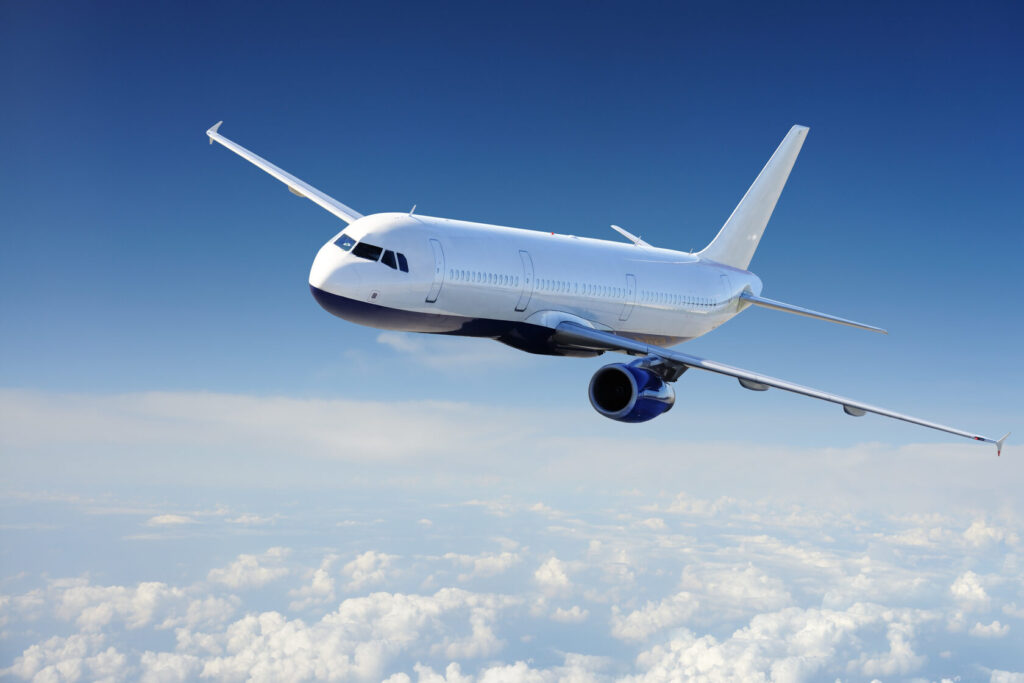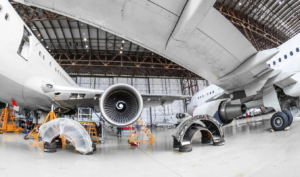Why Does The Aviation Industry Need ERP Systems?

Introduction
In a fast-paced industry like aviation, the need for streamlined processes, data accuracy, and real-time decision-making is paramount. This is where ERP systems come into play. These robust software solutions offer a comprehensive suite of tools to manage various aspects of aviation operations, from maintenance to finance and beyond.
The ERP Software for aviation industry is a complex and dynamic field that relies on precision and efficiency to ensure safe and seamless operations. In recent years, aviation companies have increasingly turned to Enterprise Resource Planning (ERP) systems to meet their evolving needs. In this article, we will delve into why the aviation industry needs ERP systems and how they can transform operations for the better. Let’s explore the compelling reasons why the aviation industry is embracing ERP systems.
Table of Contents
- Introduction
- Aviation Industry Need ERP Systems
- Conclusion
- FAQs about ERP Systems in the Aviation Industry
- How do ERP systems benefit aviation companies?
- Are ERP systems expensive to implement?
- Can ERP systems improve safety in the aviation industry?
- How long does it take to implement an ERP system in the aviation industry?
- What should aviation companies consider when choosing an ERP system?
- Can small aviation companies benefit from ERP systems?
Aviation Industry Need ERP Systems
Enterprise Resource Planning (ERP) systems have become essential for the aviation industry for several key reasons:
Improved Operational Efficiency
Efficiency is the lifeblood of the aviation sector. ERP systems streamline operations by integrating various functions, such as inventory management, crew scheduling, and maintenance tracking. This integration minimizes manual data entry, reduces errors, and ensures that the right information is available to the right people at the right time.
Real-time Data Insights
In aviation, timely decisions can be the difference between success and failure. ERP systems provide real-time data insights, enabling airlines and aviation companies to make informed decisions promptly. Whether it’s adjusting flight schedules due to weather conditions or optimizing fuel consumption, having access to up-to-the-minute data is invaluable.
Enhanced Financial Management
Managing finances in the aviation industry involves handling a significant amount of data, from ticket sales to maintenance costs. ERP systems offer robust financial modules that help companies track revenue, control expenses, and ensure compliance with industry regulations. This financial transparency is crucial for sustainability and growth.
Streamlined Maintenance
Aircraft maintenance is a critical aspect of aviation safety. ERP systems enable proactive maintenance planning by tracking aircraft components, scheduling inspections, and managing spare parts inventory. This proactive approach helps prevent costly breakdowns and ensures passenger safety.
Regulatory Compliance
The aviation industry is highly regulated, with stringent safety and security standards. ERP systems help companies stay compliant by providing tools to track and report on various aspects of operations, such as maintenance records, crew certifications, and safety audits.
Customer Satisfaction
Passenger satisfaction is paramount in the aviation industry. ERP systems enhance customer service by providing airlines with the tools to manage reservations efficiently, track luggage, and respond promptly to passenger inquiries. Satisfied customers are more likely to become repeat flyers.
Scalability for Growth
As aviation companies expand their operations, they need systems that can grow with them. ERP systems are scalable, allowing businesses to add new functionalities and adapt to changing market conditions without disrupting their core operations.
Conclusion
In conclusion, ERP systems have become indispensable for the aviation industry due to their ability to enhance operational efficiency, provide real-time insights, improve financial management, ensure safety and compliance, boost customer satisfaction, and support scalability. As aviation companies strive to navigate an ever-changing landscape, embracing ERP systems is not just a choice; it’s a necessity for sustained growth and success.
FAQs about ERP Systems in the Aviation Industry
How do ERP systems benefit aviation companies?
ERP systems benefit aviation companies by improving operational efficiency, providing real-time data insights, enhancing financial management, streamlining maintenance, ensuring regulatory compliance, boosting customer satisfaction, and offering scalability for growth.
Are ERP systems expensive to implement?
The cost of implementing an ERP system can vary depending on the size and complexity of the aviation company. While there is an initial investment, the long-term benefits, including cost savings and improved efficiency, often outweigh the initial costs.
Can ERP systems improve safety in the aviation industry?
Yes, ERP systems can improve safety by enabling proactive maintenance planning, tracking crew certifications, and ensuring compliance with safety regulations. These systems help prevent accidents and ensure passenger safety.
How long does it take to implement an ERP system in the aviation industry?
The timeline for ERP implementation can vary, but it typically takes several months to a year, depending on the scope of the project. The key is thorough planning and a well-executed implementation strategy.
What should aviation companies consider when choosing an ERP system?
Aviation companies should consider factors such as the system’s scalability, industry-specific features, ease of integration with existing systems, vendor support, and the system’s ability to meet regulatory requirements when choosing an ERP system.
Can small aviation companies benefit from ERP systems?
Yes, even small aviation companies can benefit from ERP systems. Many ERP providers offer solutions tailored to the needs and budgets of smaller businesses, allowing them to improve efficiency and competitiveness.







